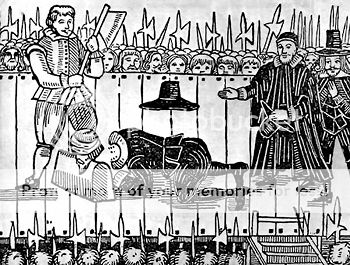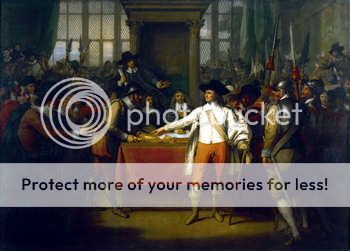Rise of the Generals, a Lord Protector Timeline
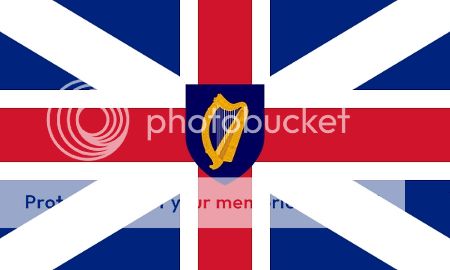
Note from the Author:
Whilst I've been an avid reader on these forums for a long time, this is the first timeline I have written (so if you see any obvious errors please let me know so I can correct where appropriate). I have been inspired by all of the creative minds on this site, and without such great works drawing me back every lunch break at work I wouldn't have ever written this. So I consider this a tribute to those timelines I've read here and the ones I have yet to read.
I would recommend you don't read the attached notes until you have read the Prologue in its entirety first. The POD may not be what you think it is. I have picked on a period of time which could have drastically changed the formation of the modern world. In OTL the British Monarchy is a symbol of the nation, but if a few elements had changed there would be no such symbol. Perhaps the lack of a Monarchy itself would become a symbol of the nation.
Regardless, I submit to you my Humble Petitio- I mean humble offering. And I'm sorry, but Christmas has been Cancelled.
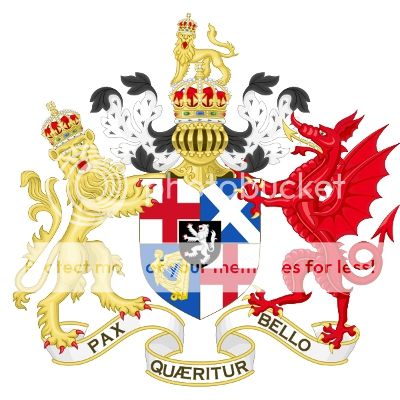
"Pax quæritur bello" (Latin)
"Peace is sought through war"
Prologue – A Body left Buried, (or Christmas is Cancelled)
Oliver Cromwell is name well recorded and recited by history. Both loved and hated, no one can deny his effect on the landscape of Britain, and by extension the world. A Britain without Cromwell would look very different indeed. His contributions to the Civil War undoubtedly aided Parliaments victory against King Charles I. His campaigns in Ireland forever changed the relationship between Ireland and England. His influence of the military and rule as Lord Protector would be long remembered after his death. On the world stage, the consequences for Britain and her colonies amongst the struggle of European nations grasping for dominance had repercussions that shaped the modern world. Without Cromwell things would have been very different indeed.
But we are getting ahead of ourselves…

First Lord Protector, Oliver Cromwell
On November 8th, 1658, the Lord Protector Oliver Cromwell passed away in Whitehall from prolonged illness [1]. The most likely cause of Cromwell's death is believed to be septicaemia related to a kidney infection, and he was buried at Westminster Abbey with an elaborate funeral. Even to this day, thousands of tourists flock to visit the resting place of the First Lord Protector and pay their respects to a man that founded a nation [2]. He left a legacy of 3 Civil Wars, a ‘King’ in exile, a Commonwealth led by a Lord Protector, a parliament in disarray and an on-going war with Spain. All these would re-emerge to plague his successor and cause further strife for years to come.
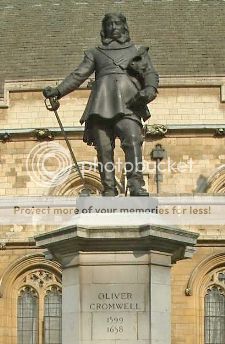
Statue of the First Lord Protector, outside Westminster
During his last days, Lord Protector Oliver Cromwell was frequently watched over by his son Richard. Richard Cromwell followed in his father’s political footsteps, having served in the Protectorate Parliaments as an MP. Many have speculated that conversations between Richard and his father would form the foundation for his son’s actions and his strong belief in parliamentary procedure. Some even suggest he left explicit instructions that ‘the name of Cromwell must never be King’, which is entirely possible given his frequent refusal of the crown and previous words spoken to that effect. Whether you believe it or not, it certainly gives Richard’s actions some perspective [3].

Richard Cromwell, son of the First Lord Protector
With the Lord Protector’s death came the matter of succession. Whilst there was much debate in some circles about Cromwell’s choice, few believe he would have chosen anyone other than his son [4]. Some would suggest that notable names such as Charles Fleetwood would have made a fine Lord Protector, but by choosing his own son the generally prevailing opinion is that Cromwell gave the Lord Protector some additional legitimacy to begin his reign with [5]. His son was well respected by the military and had served as an MP under his father’s rule as Lord Protector. This did not go down well with the Parliamentarians who weren’t happy with the title of Lord Protector to begin with, let alone it becoming a seemingly hereditary title. Perceived parallels between the powers of the Lord Protector and the exiled King would not end there. The Lord Protector’s ‘Other House’ was still very much in existence and the future Lord Protector enjoyed much support from his military allies both within the House of Commons and without.
Parliament was summoned on December 12th 1658 and on February 2nd 1659 the Third Protectorate Parliament assembled [6]. It’s very first duty was recognising the late Lord Protector’s eldest son as his successor as per his decree, and the vote passed by 189 to 164 [7]. Tensions over the new Lord Protector had started simmering even before Parliament assembled and this was reflected in the voting. The vote was far closer than expected and the general disapproval of the Lord Protector was reflected by the Parliamentarian or ‘Republican’ faction. The Lord Protector was far too close to the military, and many feared his rise would see even further power flowing into the hands of the Generals. Their fears would very soon manifest. None the less - sufficient apathy, approval of his father and outright support won the Lord Protector his title.
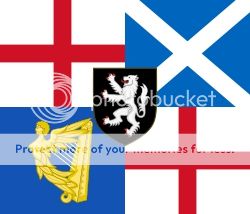
The Standard of the Lord Protector
In a ceremony much like his father’s, using the same symbols of office such as a purple ermine-lined robe, sword of justice and sceptre, His Highness Oliver Cromwell the Second, by the Grace of God and Republic was proclaimed Lord Protector of England, Scotland and Ireland. His reign would see years upheaval and war, reshaping England and Europe forever.
The reign of Lord Protector Oliver Cromwell II had begun [8].
[1] He died 3rd September in OTL. Due to butterflies he passes away a few months later in November (it is suggested the death of his favourite daughter in August causing depression hastened his decline, but in this some hope for the future of his Protectorate means he hangs on longer. The illness and suggestion personal physicians mis-treated his illness make his death unavoidable in TTL though).
[2] Hence the title ‘A body left Buried’. Don’t expect a Restoration any time soon. Plus he will look a lot less monstrous compared to his successor. Oh, and Christmas is cancelled, blame the Puritans.
[3] This is entirely conjecture on history’s part, though it is likely Richard was around during Cromwell’s death OTL too. What actions you ask? Wait and see...
[4] Again speculation on history’s part. In OTL many were surprised at Cromwell’s choice of his son as successor. But Richard was far less influential...
[5] Even more speculation, but entirely plausible. In OTL Fleetwood probably would have been a better choice, however in TTL Fleetwood is more obviously part of the support structure.
[6] Summoned 9th December 1658 OTL and Assembled 27 January 1659 OTL. Delayed due to butterflies in Cromwell’s death.
[7] In OTL Richard Cromwell was voted in 223 to 134, however in TTL the new Lord Protector is less popular and more offensive to certain groups.
[8] The POD. Oliver’s son Oliver Cromwell Junior does not die of Typhoid fever during the Civil War in 1644. He goes on to have a reasonable career and becomes Oliver’s successor. He has the advantage of being a Civil War veteran and enjoys strong support of the military unlike Richard in OTL. And why yes, that first paragraph WAS about Oliver Cromwell Junior...

